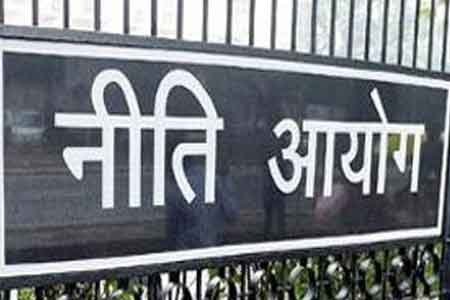India has officially cemented its position as the largest whisky market in the world, with annual consumption exceeding 220 million liters. At the heart of this booming trade lies the India-UK Free Trade Agreement (FTA), a historic economic alignment that has turbocharged bilateral benefits. The data, jointly released by the Scotch Whisky Association and the Confederation of British Industry (CBI), underscores a powerful shift in global whisky dynamics, placing India not just as a major importer but the top global consumer of Scotch whisky.
India: A Whisky-Thirsty Nation Fueling British Exports
Whisky consumption in India is not just a matter of volume—it’s a cultural and economic juggernaut. Indian consumers exhibit an increasingly refined taste for premium and super-premium Scotch brands, including Johnnie Walker, Chivas Regal, Ballantine’s, Glenfiddich, and The Macallan. In monetary terms, India imports nearly ₹13,000 crore worth of Scotch whisky annually from the United Kingdom alone.
This demand is driven by India’s burgeoning middle class, rapidly growing urban population, and a rising appetite for luxury goods. As income levels rise and global exposure widens, Indian consumers are shifting from domestically-produced spirits to internationally recognized labels.
Free Trade Agreement: Lower Duties, Wider Access
One of the cornerstones of the India-UK Free Trade Agreement is the gradual reduction of the steep 150% import duty imposed on Scotch whisky. Under the newly signed FTA, this import duty will be reduced to 75% or lower over a set period. This significant cut is expected to bring down retail prices of imported Scotch whisky by 10% to 30%, making premium brands significantly more affordable to a wider base of Indian consumers.
As per projections by the Scotch Whisky Association, such a tariff reduction could potentially drive a 20–25% surge in Scotch whisky sales in India, presenting an enormous growth opportunity for UK distillers.
British Whisky Distillers Eye Exponential Export Gains
With India’s market opening further, British whisky distillers are preparing for a strategic expansion. For brands that once considered India a long-term target, the market is now seen as an immediate priority. Reduced tariffs, enhanced visibility, and regulatory clarity have removed many of the historical bottlenecks.
Industry insiders predict that India could soon outpace all other Scotch-importing nations combined, reshaping export strategies across the UK. The CBI has hailed the FTA as a watershed moment for British businesses, enabling not just increased exports but deeper cultural and business ties between the two nations.
Impact on Pricing: From Elite to Everyday
Currently, bottles of high-end Scotch such as Glenfiddich 15-Year-Old or Johnnie Walker Black Label retail at nearly ₹5,000 to ₹7,000, largely due to cumulative import duties, excise taxes, and state-level levies. With the revised trade structure, many of these brands could see prices dip to ₹3,500–₹5,000, bringing them within the purchasing power of a much broader demographic.
This shift will not only transform buying behavior but could also push more Indian consumers toward legal, premium alcohol consumption, a move welcomed by health and regulatory bodies.
Boost to India’s Revenue Despite Duty Cuts
The concern over reduced import duties impacting government revenue is being carefully addressed by financial experts and policymakers. According to the Central Board of Indirect Taxes and Customs (CBIC), India earns over ₹2.5 lakh crore annually in liquor-related taxes, a substantial chunk of which comes from foreign brands.
While a decrease in tax per bottle may seem like a fiscal loss, the projected surge in volume is expected to more than compensate for this in the long run. Increased sales mean greater total tax collection, more compliance, and lesser dependence on illicit liquor markets.
The Shift in Consumer Demographics
The Indian whisky consumer base is undergoing a seismic shift. Urban millennials, affluent professionals, and even Tier-2 city consumers are showing a marked preference for branded international spirits. The aspirational value of owning a bottle of Macallan or pouring a glass of Chivas 18 is now as much about lifestyle as it is about taste.
Furthermore, social media, celebrity endorsements, and global travel have amplified Scotch whisky’s prestige, placing it high on the wishlists of India’s upwardly mobile citizens.
Scotch as a Cultural Currency
In India, gifting Scotch whisky has become a symbol of class, sophistication, and status. It dominates corporate gift hampers, wedding offerings, and celebratory toasts. This cultural integration further fuels demand, particularly for limited edition releases and age-stamped variants.
Retailers and distributors are already expanding their portfolios to include more single malts, rare blends, and distillery-exclusive editions, foreseeing a golden era for whisky connoisseurship in India.
Implications for Indian Whisky Makers
While this deal largely benefits UK exporters, it also challenges Indian whisky brands to elevate their game. To stay competitive, domestic distillers must now focus on quality innovation, international collaborations, and brand storytelling that rivals the legacy appeal of British counterparts.
Some Indian companies are already exploring partnerships with Scottish distilleries, while others are experimenting with aged expressions, sherry cask finishes, and single malt releases to tap into the evolving palate.
Whisky Tourism and Economic Spillover
The enhanced popularity of Scotch whisky is also expected to drive whisky tourism in both countries. UK distilleries are tailoring experiences for high-net-worth Indian travelers, while India is exploring distillery tourism circuits in regions like Goa, Himachal Pradesh, and Karnataka.
Moreover, hospitality and retail industries in India stand to benefit significantly from the greater availability of premium whisky, leading to job creation, luxury retail growth, and foreign exchange inflow.
Conclusion: A Spirited Partnership with Lasting Impact
The surge in Scotch whisky imports, bolstered by the India-UK FTA, is not merely a trade statistic—it represents a fundamental evolution in consumer preference, international diplomacy, and economic strategy. India’s emergence as the largest global market for British whisky is a testament to its economic ascent, cultural openness, and strategic global partnerships.
As the FTA provisions begin to take effect and duty reductions are gradually implemented, we are witnessing the dawn of a new era in Indo-British trade—one where a glass of whisky is more than a drink; it is a symbol of collaboration, celebration, and shared prosperity.















